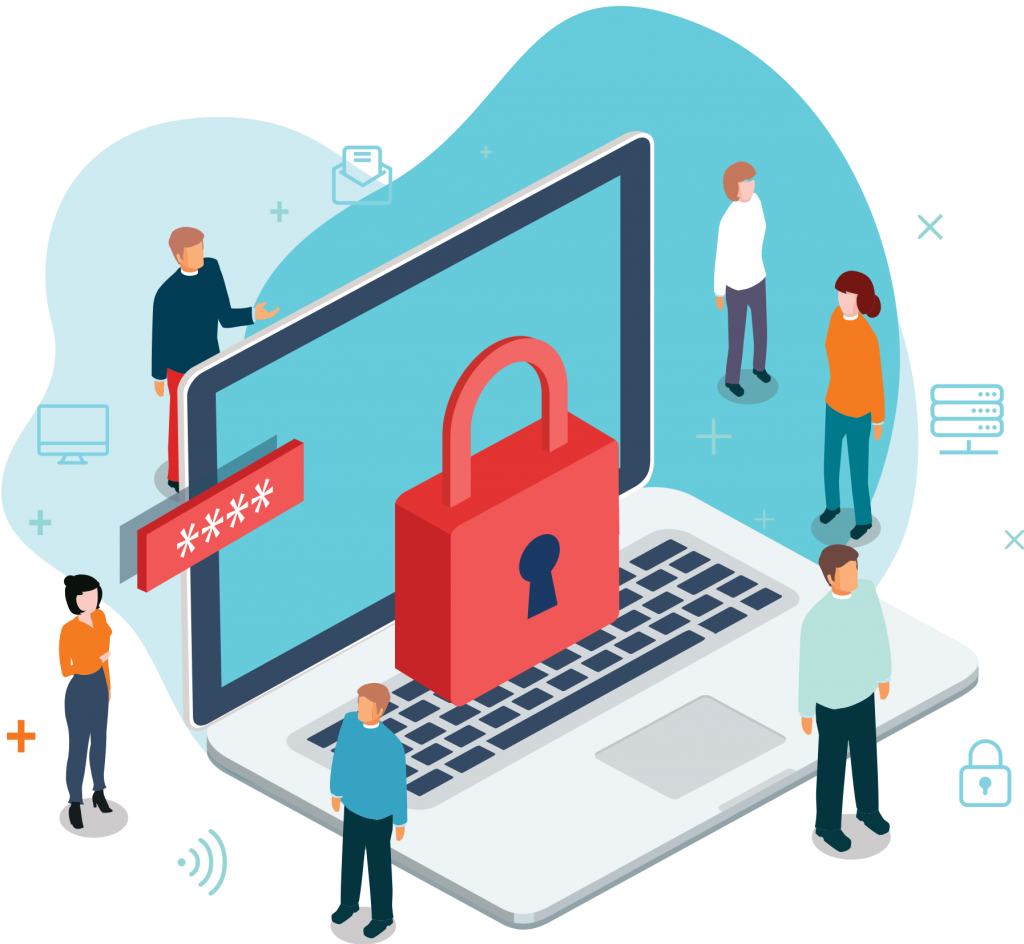
Cybersecurity series - helpful tips from our team
Covid-19 has accelerated our need for connectivity
We’re living in an age of connectivity. We carry around devices which link us to everything and everyone. Facebook connects us to family and friends, LinkedIn keeps us in touch with business contacts. We share information about our personal and business lives like we’ve never done before. Our homes and appliances connect to the internet and our lives are now online all day, every day.
Does advancement equal risk?
Technological advancement makes our lives both simpler and more complicated. Our anytime, anywhere access to data is helpful for us but also benefits those wanting to take advantage of us. Cyber crime is experiencing exponential growth with individuals and businesses attacked every day
Security is YOUR responsibility
IT can implement security technologies to help keep data safe, but there needs to be a fundamental change in the way everyone thinks and acts about security. Most cyber security breaches are caused by human error; little mistakes you make that can be exploited by cyber criminals.
Consider this analogy
Once upon a time, people didn’t lock their doors at home. But as crime increased, locks and even security doors became standard practice. These security measures are needed to protect your personal possessions and contents. You go further and install a safe to store cash and valuables, realising that locking doors is not a perfect security solution.
When not home, you’re really careful with your keys and wallet. You don’t leave them visible in public and certainly don’t give them to anyone you don’t 100% know and trust.
With many of our possessions now digital and online, what is the equivalent of these security measures and behaviours? How do we protect our bank accounts, credit cards, identity documents and personal photos?
How do I protect my online data?
Apply the same concepts to your online data and digital world.
Start by locking your computer when you walk away from it. This prevents unauthorised people gaining access to your files, websites and applications when you’re not present.
Protect your passwords like you protect your house keys. Never give your password to someone on the phone, or enter it into a website, unless you are 100% sure you know and trust the site or person.
Just as good quality locks provide better physical protection, strong passwords make it harder for hackers to access your accounts. Just in case one password gets stolen, use unique passwords for systems containing personal or financial important such as email and online banking.
Be aware of strange people or behaviours. Stop, think and question any unusual requests you receive via phone or email.
What can I do?
There are some very simple steps we can all take that will make a difference, and it starts at home.
To start with you can make sure that you:
- Always lock your computer or laptop when you walk away from it
- Make sure you use different passwords for anything that contains personal or financial information
- Stop, think and question when you get an unusual request on the phone or via email
What else can I do?
Cybercrime is costing Australian individuals more than $12 million dollars a month [1] – don’t be one of the victims.
Educate yourself about cyber security. Awareness is the key to avoiding falling victim to these increasingly sophisticated cyber attacks.
If you want to learn more, reach out to our team to discuss a comprehensive cyber security strategy including technology, processes and training.
